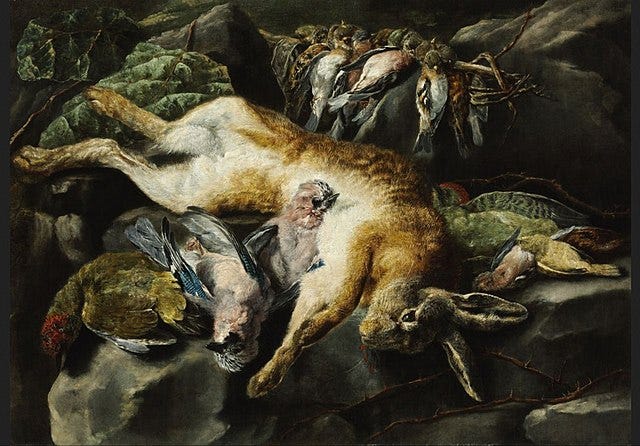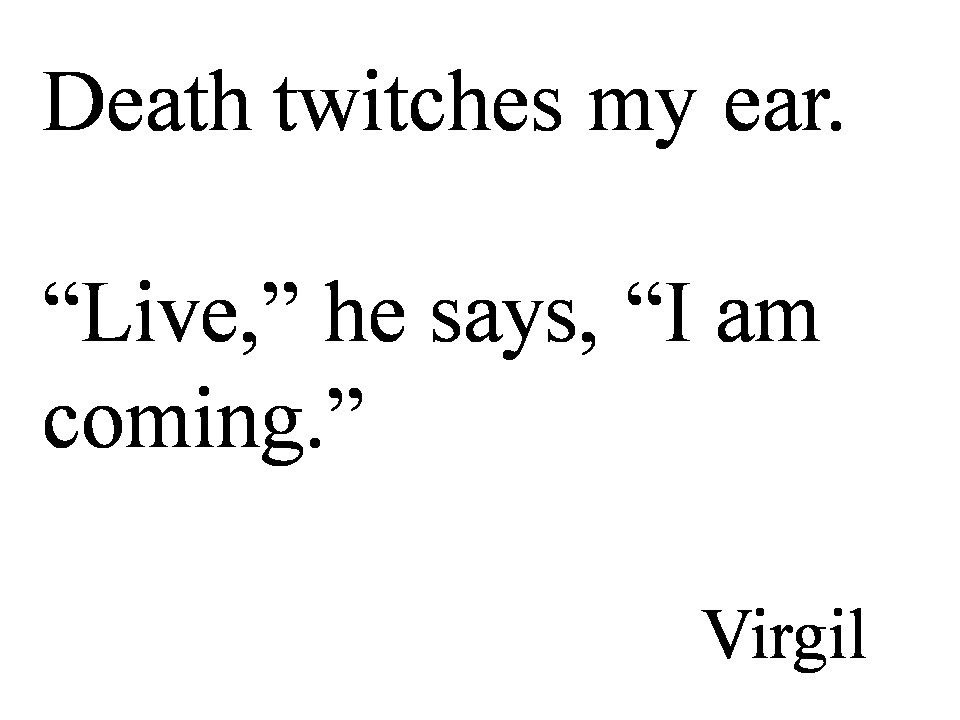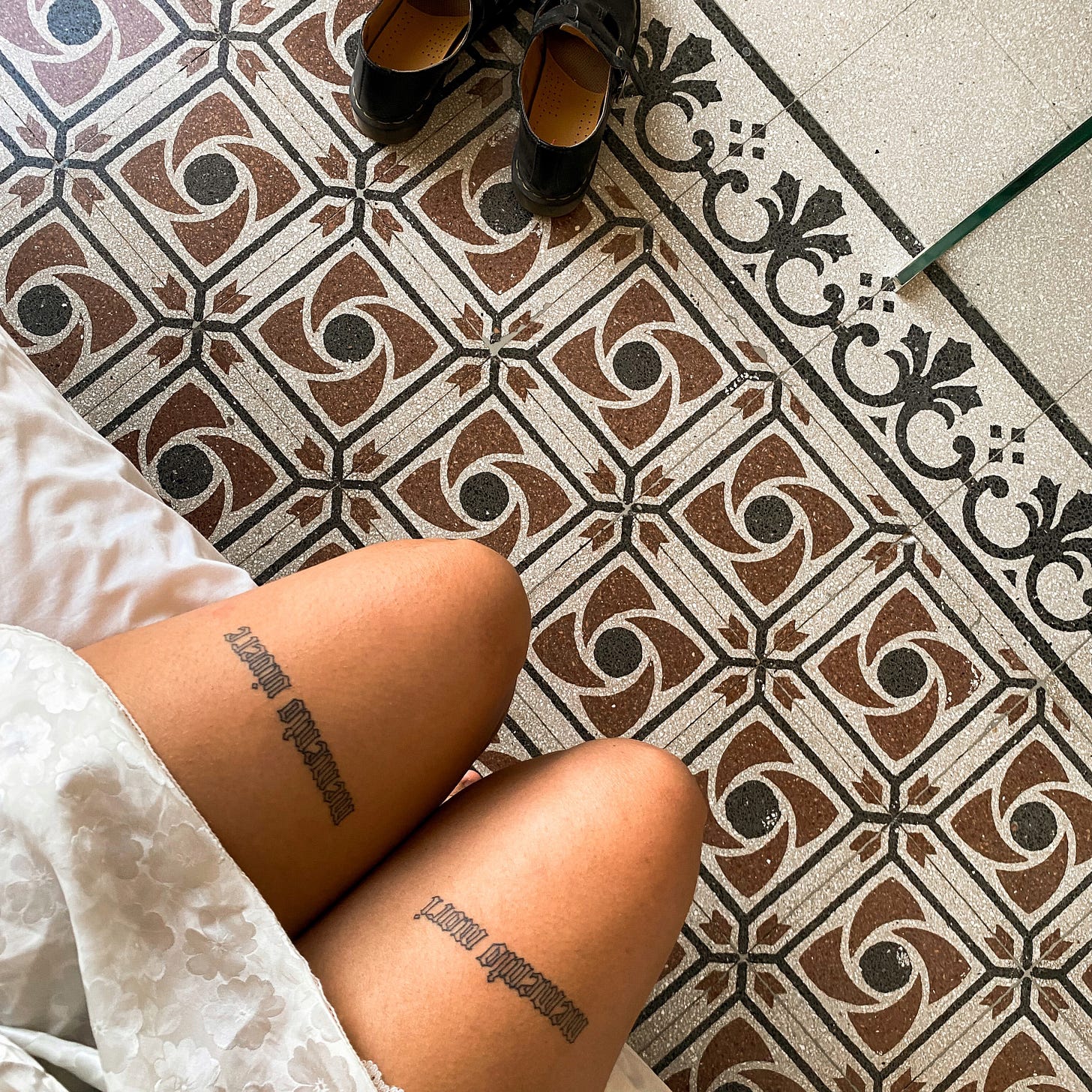Welcome to Ruminations, a newsletter dedicated to sharing vulnerable musings on art, literature, and creative identity & home to Altars & Artists, a monthly interview series divining the poetry of artists’ spaces. Subscribe for monthly letters, or consider a paid subscription to unlock the FULL archive of poetry, audio & visual content, exclusive updates, community conversations, and the extended cut of Altars & Artists.
Your contribution helps keep Ruminations running & this writer at her desk ❧
Bringing you a letter from the archive…
This time last year, death was heavy on my mind. Winter had been cruel and cold before Spring saved and soothed my aching heart.
I sent this letter to 271 of you exactly one year ago. Since then, much has changed—for one, my relationship with death is more a mutual morbid curiosity than a shared open wound. There are also over 2000 of you now, which blows my mind every time I think about it.
I digress. Wishing you a slow, introspective September, my loves x
Memento Mori
The winter months have been cruel—but at last, in this final week of August, the cold has crumbled to reveal a soft, smouldering core. With it comes a familiar sigh of relief as my bones thaw and spring unfurls its perfect petals. The dappled sunshine and drips of colour bring life to the season that left me drowning in a familiar, imprisoning shade of blue. Winter’s icy, barren months have taken their toll and neither art nor artist has escaped the consequences.
Death and I share a relationship wherein it simply exists and I cower at the thought of it. This is how it has always been; death, in its dark shroud, and me, another wayward human in denial of my imminent demise. But lately, things have changed:
Death has been biting at my ankles.
Breathing crooked, cold breaths behind my ears.
Trawling its bold, bloated tongue over my neck’s prickly nape.
Death has come for my ignorant bubble thick and fast. I am in a season of dying and cannot deny it any longer.
Pulvis et umbra sumus. (We are but dust and shadow.)
— Horace, The Odes of Horace
I have long found resolve in the Latin phrase “memento mori”. I have it tattooed above my right knee for a daily reminder that one day, I must die. This notion of remembering death can be traced back to both Greek and Roman philosophy, with Socrates arguing that “the one aim of those who practice philosophy in the proper manner is to practice for dying and death” (Plato, Phaedo, 64a). Later, Stoics believed meditating on the impermanence of life anchored you to reality and encouraged a meaningful existence. Death is deeply intertwined in the human experience and is honoured historically in many religions and cultures across the globe - consider the Capuchin Catacombs in Palermo, the Gaelic festival Samhain, Mexico’s largest holiday Dia de los Muertos, the period of Lent undertaken by Catholics, and Famadihana in Madagascar. Memento mori are found in the skulls, clocks, puckering fruit and dying flowers of art and literature, and they all ask you to recall your imminent doom.
With this in mind, when I say the winter months have been cruel, I mean that this small crutch of a saying has been forced to take on new weight.
This year I lost a loved one and a pet. I work in a hospital and have had to come to terms with patient deaths that have violently shaken me and turned my heart inside out. I held back tears as I carefully bathed and wrapped families’ whole worlds in a blanket before being taken for one final transfer down to the morgue. I’ve found myself a mirror to one of the coldest winters I’ve experienced; opportunities have withered like leaves before my eyes, and well-laid plans have quaked and cracked, and fallen through. My creative landscape is barren and poems freeze and die at the tip of my tongue. The future I envisaged for myself has darkened and I’m unsure which foot to place where next.
I can feel the core of my being fragmenting and the pieces being pried apart by unknown forces with a grip so fierce it physically pains me. Where these varying fragments are going, I do not know. I only know that they are flying in completely opposite directions. I’m in a perpetual state of inner turmoil and I cannot help feeling that this process, too, is a kind of death.
I recently caught up with someone I hadn’t spoken with since high school.
Seven years on, we found ourselves sipping coffee, learning what journeys each of us had undertaken, and discovering in each other a shared desire for radical change in the world around us. Where I had become pessimistic, she surprised me with a genuine optimism that left me in a quiet state of awe. We agreed the world was crumbling before our eyes, but where I have been shortsighted and seen only the destruction of what I know, she recognised this destruction as transmutation—the birth of something new.
Later we sat in her car and my eyes fell across a collection of earthly treasures resting in the lap of her dashboard. One of those treasures was an animal vertebra, and she remarked that she wasn’t sure how she felt about its presence; it marked for her the death of something significant and she wondered if it were bad luck. I offered that maybe it was the opposite—the gentle push toward a necessary end, the whisperings of a new beginning. Her perspective changed.
In this shared experience, she left me with two gifts: a bone and a blessing.
Memento Vivere
I recognise the irony in drawing guidance in life from a phrase in a “dead” language. However, I would argue the Western collective disassociation from death and dying makes my reliance on archaic notions necessary. Life is no longer portrayed as circular—rather a severed loop, stretched end from end into a perceptually endless line.
The line does end, though: precisely where it began.
Tattooed above my left knee is a counter: “memento vivere”, remember to live. A reminder that after death there will always be life. That dying is a process reserved for the living. That I will die a million ways in every facet of my existence - socially, artistically, metaphorically, emotionally, perpetually. That I may not stop for Death, but Death will always stop for me.
You and I will die in this lifetime again and again and again, and all the while we will live—so let us live damn well.
Yours ephemerally,
Caitlin x










